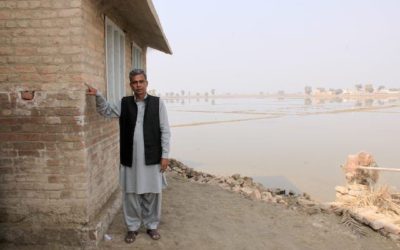Climate Refugees definition: can we define a climate refugee?
Climate Refugees definition: can we define a climate refugee?
Alex Randall
Alex is the programme manager at the Climate and Migration Coalition. An organisation focused on the rights and welfare of people displaced by the impacts of climate change.
Image: The Pacific Island state of Kiribati. Rafael Ávila Coya. (CC BY-SA 2.0)
The term “climate refugee” has become a shortcut for the entire issue of climate-linked migration. Two huge debates currently rage about the phrase: first, exactly who counts as a climate refugee? and how many climate refugees will there be?
The case we make here is that both of these questions might be impossible to answer, and there are actually some much more important questions we should be thinking about.
Climate, migration, neoliberalism
The lecture sketches out a history of neoliberalism, and then looks at how the culmination of this political thinking is reflected in the policies that are being created to address climate change and migration.
Can we define climate refugees?
There are a great number of different definitions of the term “climate refugee”. However, it is worth noting that there is no official definition. Neither the United Nations or any international agency that works with refugees or on climate change recognises any particular definition.
For a definition to be useful it would need to make it clear who is and who is not a “climate refugee” – and this is where things get complicated. When people move due to climate change impacts they are often moving for a variety of other reasons as well.
Consider this example.
Climate change could have an impact on drought and then on farming. This may mean that people move as the income from their farming declines and they need to find other work. Are they climate refugees?
It could well be that if they had access to other work nearby that they wouldn’t move. So is it climate change that has caused them to move? Or is it the fact that their local economy lacks alternative employment?
Of course we can say that climate change was among the forces that made them move. But the phrase “climate refugee” suggests something very absolute. Either some is a “climate refugee” or they are not. But the reality is that a variety of forces – including climate change – will cause people to move. So absolute definitions are difficult to apply.
Climate, migration, neoliberalism
The lecture sketches out a history of neoliberalism, and then looks at how the culmination of this political thinking is reflected in the policies that are being created to address climate change and migration.
What might be wrong with climate refugee definitions?
The term “climate refugee” suggests that people who fit the definition might be entitled to some kind of refugee status or rights. They might be allowed to enter and stay in a country because climate change has forced them to move. There are several problems with this:
- The Refugee Convention specifies very clearly things that people must be fleeing in order to gain refugee status. The impacts of climate change are currently not included on that list. Therefore even if someone is described as a “climate refugee” it does not mean they would legally be in the same position as other refugees.
- Most climate-linked displacement will be internal. To be a refugee someone has to be outside their country of residence. As well as meeting other criteria, they must have crossed an international border. People who are forced to move within their country are Internally Displaced Persons. Given that climate change is likely to create internal movement, the term “climate refugee” can be misleading
- Most people facing migration due to climate change do not want to be “refugees”. The idea of a refugee comes with a lot of baggage, and people facing climate-linked migration would prefer not to be seen or defined as refugees of any kind.
Climate change and migration: predictions, politics and policy
Get to grips with one of the defining issues of the 21st Century – how will climate change re-shape migration across the world. Join a free, 100% online course to investigate this essential topic
Event: Migration and displacement at the climate talks
How are migration and displacement being dealt with at the international climate change talks? Find out more with our online event
Event: Climate change and Migration 101. 4 December
Get to grips with the links between climate and the movement of people
Event: hot wars- Climate change, armed conflict and security. 15 November
What do we know about the links between climate change and conflict? Will life on a hotter planet be on with more armed violence?
Briefing: climate change and migration. 24 October, London
An evening briefing exploring the links between climate change and migration. Find out more and book places. 24 October, London
Workshop on climate change and migration. 16 October, London
Workshop on climate change and migration. A half-day session exploring the links between climate change and migration. 16 October, London






